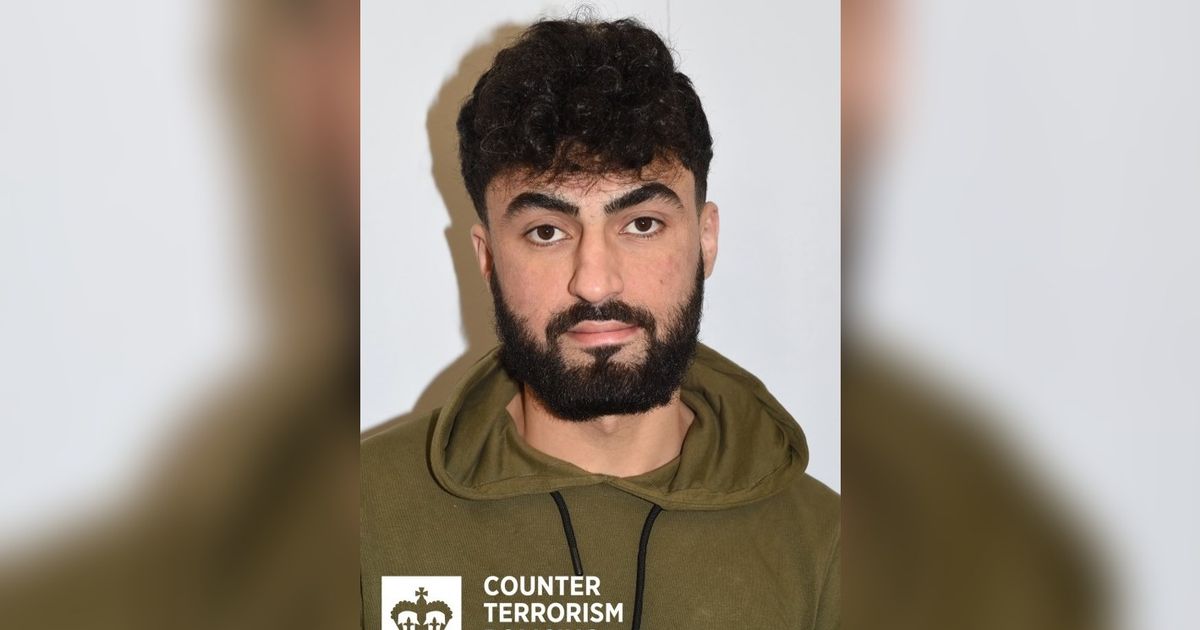Mohammed Hamad was part of a group of “trusted brothers” who shared Islamic State propaganda videos which included soldiers being beheaded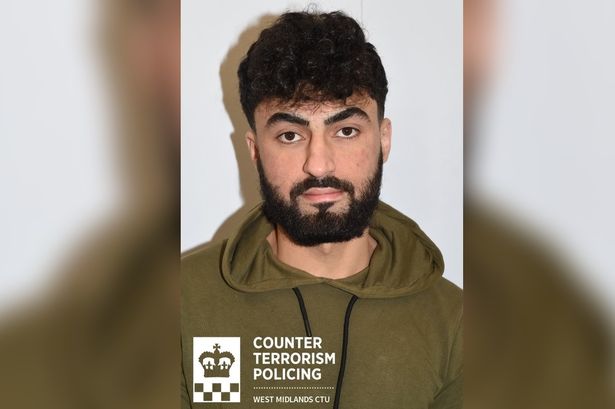 Mohammed Hamad, this week admitted two offences connected to the dissemination of terrorism propaganda at Liverpool Crown Court(Image: Counter Terrorism Policing West Midlands )
Mohammed Hamad, this week admitted two offences connected to the dissemination of terrorism propaganda at Liverpool Crown Court(Image: Counter Terrorism Policing West Midlands )
A man who worked as a barber and partied in nightclubs privately sent a beheading video to a WhatsApp group promoting Islamic State. Iraqi-born Mohammed Hamad came to the UK illegally in 2016 and settled in Liverpool after he claimed he could not return home to Iraqi Kurdistan because his life was in danger.
But in June 2022 the now 30-year-old was added into a WhatsApp group made of “trusted brothers,” who shared Islamic State propaganda videos which depicted soldiers being executed and set on fire. Hamad responded with messages of support to the other members of the group, before he posted two videos himself which “encouraged the commission, preparation or instigation of acts of terrorism”.
Hamad was said to drink alcohol, go to nightclubs, have gay and lesbian friends and live a traditional western lifestyle. But today at Liverpool Crown Court Judge Neil Flewitt KC told him: “It demonstrates the hypocrisy of a person willing to embrace a Western lifestyle while privately supporting a terrorist organisation trying to destroy it.”
David Earl, prosecuting, told the sentencing hearing that Hamad was added to a WhatsApp group on June 18 2022. The group was made up of a small number of people who were “trusted brothers”, including Tshko Mohamad, Roshman Saeed and Omar Ahmadi.
The following day, Mohamad sent an introductory message to the group to make clear its purpose. The message, translated from Kurdish, said: “Swearing by the almighty Allah, we have given a pledge of allegiance to the almighty Allah that we will come to you under the flag of the IS caliphate in whatever hole you are in this world, otherwise we will by Allah separate your head from your body.”
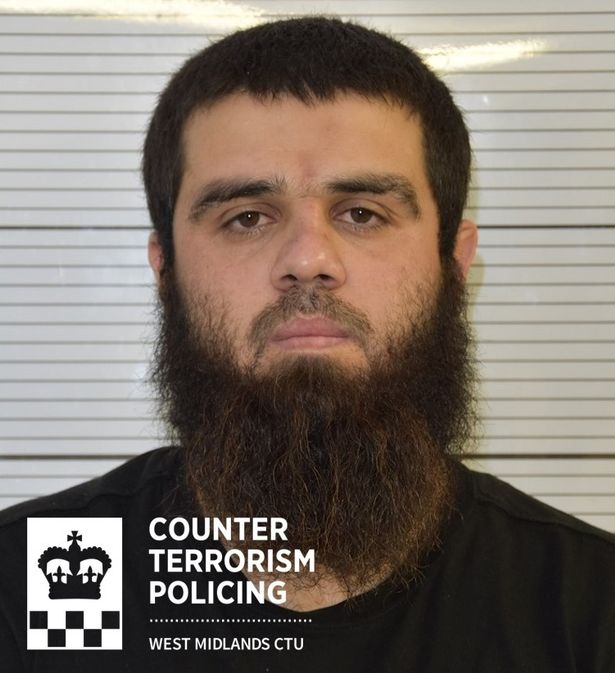 Roshman Saeed jailed for terrorism offences(Image: Counter Terrorism Policing West Midlands )
Roshman Saeed jailed for terrorism offences(Image: Counter Terrorism Policing West Midlands )
Saeed and Mohamad were frequent contributors to the group. In one video on July 14 2022, Saeed shared a video which showed a shackled soldier on fire, with the message “it contains roasting, it is very tasty”. Mohamad posted the sweating emoji and Hamad responded “oh Allah, oh Lord, amen”.
Another video also posted in the group included a speech by Abu Bakr, an Iraqi militant and former leader of Islamic State, people driving “vehicled bombs and soldiers being executed”.
Hamad later posted his own videos into the group. On December 9 2022, shortly after 9am, he posted a video of a student of Mullah Shwan, a Kurdish senior member of Islamic State who was killed in July 2015.
Mr Earl told the court the video depicted a lengthy speech using a “brother to go to the front with a BKC”. Mr Earl said the prosecution submits this is a weapon, with it being understood a BKC was a general-purpose machine gun.
The court had earlier heard during Mr Earl’s opening that when Hamad illegally arrived in the country in March 2015 and applied for asylum, he told his interviewer that he “was a student of Mullah Shwan” and his life was in danger because he had been taught the Koran by him.
On January 18 2023, Hamad sent another video into the WhatsApp group. This one was an Islamic State video which showed the execution of three prisoners who were beheaded in the street. The screen opened with an insurgent standing behind the captives armed with a large knife, before “angrily reciting a pre-beheading speech in which he claims to be acting in revenge for a recent attack on the Muslim people”. However, the court heard the video ended before the beheading began.
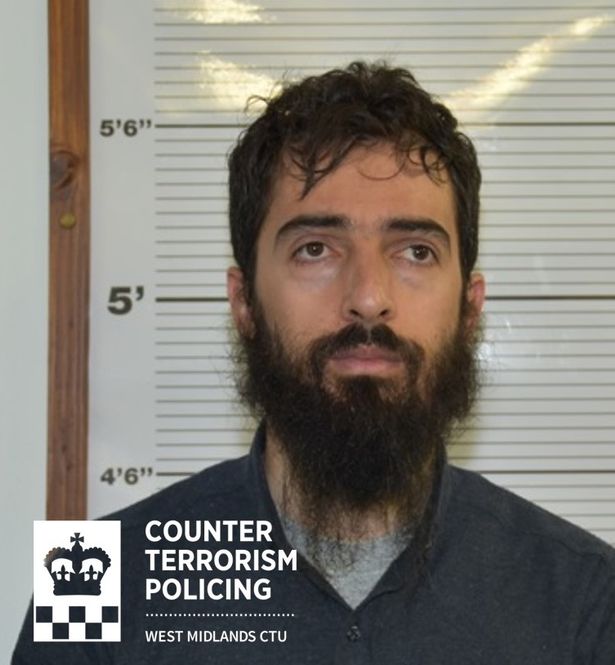 Tshko Mohamad jailed for terrorism offences(Image: Counter Terrorism Policing West Midlands )
Tshko Mohamad jailed for terrorism offences(Image: Counter Terrorism Policing West Midlands )
Mr Earl told the court: “It is clear from the evidence that Mr Hamad shared the pro-Islamic State mindset of the group…but was not as prominent a contributor as the others”. Hamad was also in private contact with two of the other men in the group. This contact also included the sending and receiving of money.
The WhatsApp group was discovered on March 19 2023 when Ahmadi was arrested at Stansted Airport on his way to Turkey. A warrant was carried out at Hamad’s home on March 13 last year and two phones were seized, including one that belonged to his wife.
However, neither the phone nor SIM code associated with the number attributed to him in the group were found. Mr Earl said they had been “disposed of way before the police intercepted”. Meanwhile Hamad, who had a Kurdish Sorani interpreter in the dock, told officers: “I lost my phone a long time ago. I want a solicitor.”
When he was interviewed by police he maintained that account and told the officers he was not responsible for the messages posted by that phone number and that he was not a supporter of Islamic State. However, Hamad, who was due to stand trial, pleaded guilty to two counts of dissemination of a terrorist publication under the Terrorism Act on Monday this week before the jury was due to be sworn in.
In mitigation, Kate O’Raghallaigh, defending Hamad, told the court that the first video her client shared was “no more than a glorifying account of life within that territory that is almost certainly 10 years old so doesn’t promote terrorist activity”. She added the second video was Islamic State propaganda which had previously been partly published by global media channels.
She added: “The court ought to have an interest if there is not a shred of evidence that this defendant had in his life lived out any of his ideals promoted in this chat. The position is the opposite. The court has seen evidence which is entirely consistent with this man being in his real life consistently a hardworking, local barber in Liverpool who is not religious, not devout, who lives a traditional western lifestyle.”
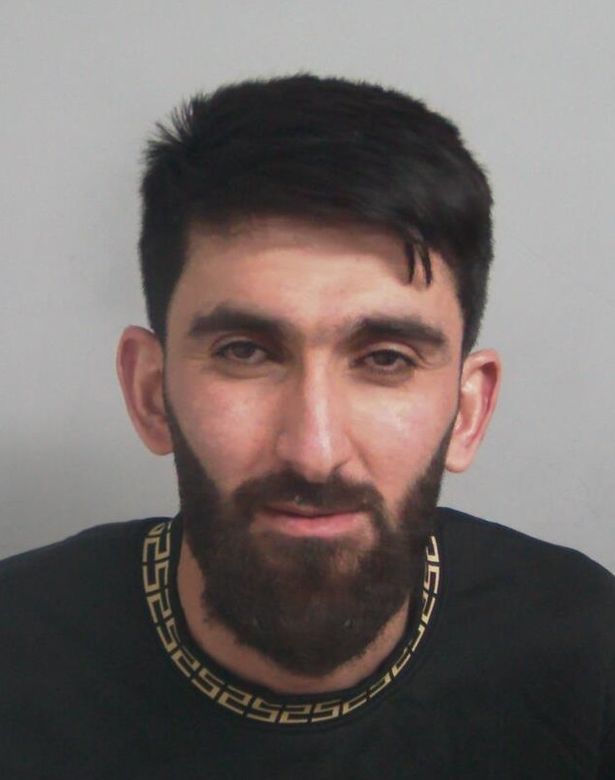 Omar Ahmadi jailed for terrorism offences(Image: Counter Terrorism Policing West Midlands )
Omar Ahmadi jailed for terrorism offences(Image: Counter Terrorism Policing West Midlands )
Judge Flewitt asked: “It begs the question, which is the real life?” and added: “It is not unknown for people to commit terrorist acts who have historically led lives that give no indication it was ever going to happen.”
Ms O’Raghallaigh added: “The point is there is no good reason for the court to decide that this WhatsApp chat was anything other than an isolated bubble where the offences were committed.”
Sentencing, Judge Flewitt told Hamad that “in addition to contributing the two videos that form the basis of the offences to which you have pleaded, the evidence shows that you shared the pro-Islamic mindset of the other members of the group”. The judge added that it was conceded by the prosecution that he was not as prominent a contributor as others and that he couldn’t be linked to a “terrorist funding arrangement” involving other members of the group.
Judge Flewitt added: “Your approval of the posts of other members of the group, coupled with your decision to share the videos that form the basis of these offences, is capable of having the effect of encouraging and confirming their already formed extreme views.”
Hamad was sentenced to four years in prison with an additional year on licence in the community. The judge also made Hamad, who sported cropped black hair and beard in the dock, subject to notification provisions of the Counter-Terrorism Act 2008 for 10 years.
Hamad, supported by his wife and a number of other people in the public gallery, did not react when he learnt his sentence.
Saeed, Mohamad and Ahmadi were convicted and sentenced at Birmingham Crown Court last year. Saeed was convicted after trial of six offences of disseminating a terrorist publication and of one offence of entering into a terrorist funding arrangement. Mohammad was convicted after trial and Ahmadi pleaded guilty to entering into the same terrorist funding arrangement. Saeed was jailed for 12 years; Mohamad seven years; and Ahmadi five years and seven months.
Detective superintendent Annie Miller, from counter terrorism policing West Midlands, said: “It’s clear all these men were involved in supporting Islamic State. The group chat was used to promote propaganda and arrange to raise money in the UK to then send to IS to support their activities.
“It is entirely unacceptable to promote terrorism and we will not hesitate to investigate online behaviour or content which breaches terrorism or other criminal legislation.”
